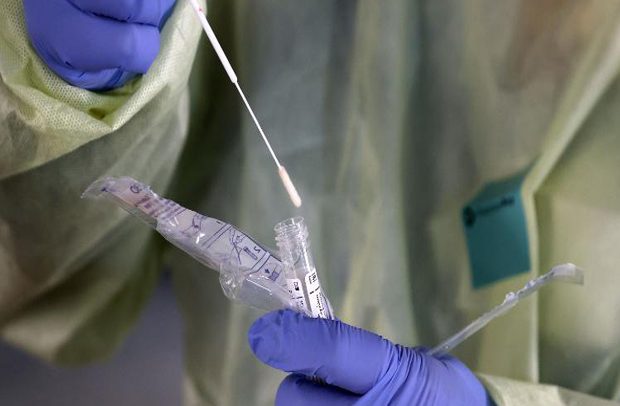President Akufo-Addo has told the virtual summit of Heads of State of the ECOWAS region that Ghana has succeded in testing over 85,000 people for Coronavirus (Covid-19).
He indicated that there has been an aggressive process of tracing and testing, with over 85,000 Ghanaians having been tested for the virus.
“So far, over 85,000 Ghanaians have been tested. We are looking to test as much as 100,000. This has enabled us to get a hang of the geographic footprint of the virus, of identifying the epicentres of our country, and also better understanding the dynamics of the virus, while we are treating and isolating infected cases,” he stated.
In trying to stop community spread, President Akufo-Addo indicated that public gatherings have been banned, including the closure of churches and mosques and modalities put in place for the holding of funerals.
“We are encouraging the hygiene protocols – the washing of hands, the social distancing and also wearing face masks.
Happily for us, under the present circumstances, our infection rate continues to be 1.5% of the screened population, and it has remained at this figure for some time. We are encouraged that, hopefully, we will see to its reduction,” he added.
He said the decision to ban inbound travellers had helped to stem the importation of the virus.
“That is why the decision was taken to ban travellers from the epicentres from coming into Ghana, and, subsequently, the complete closure of the borders,” he indicated.
President Akufo-Addo urged West African leaders to manage and enforce the closure of their respective borders, to prevent illegal crossings.
To limit the impact of the virus on the economic and social life of Ghanaians, the President indicated that specific measures have been taken to provide relief for all Ghanaians, stressing that “we have relief programs to provide free water, subsidize electricity in order to deal with the impact on especially vulnerable segments of our society.”
The onset of the pandemic, President Akufo-Addo said, “has also given us an opportunity to scale up domestic production for medical material, protective equipment as well as medicines, sanitizers and the rest. We believe that with their sufficient support and inspiration from government, domestic manufacturers and local enterprises are capable of rising to the challenge to find us the opportunity to meet our needs from Ghana.”


